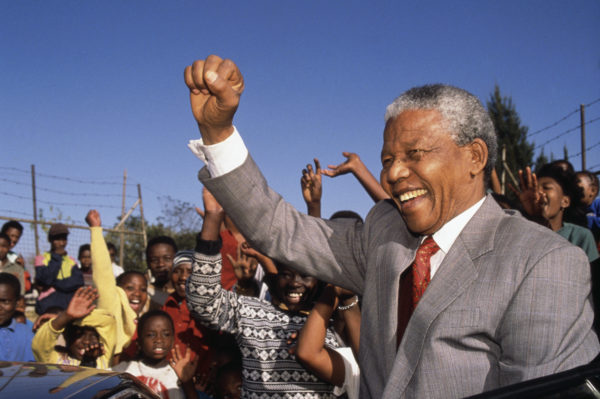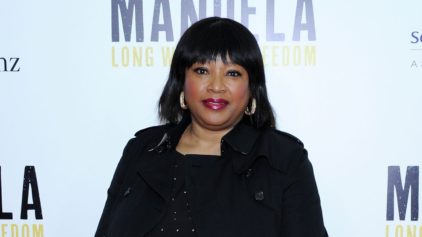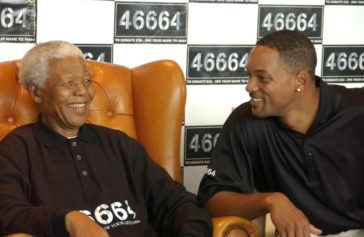July 18 is Mandela Day, which is also the birthday of Nelson Mandela, the late South African freedom fighter and political prisoner-turned-president. Mandela, who died in 2013, would have been 101 years old this year. There has been much time to reflect on the man, the movement of which he was a part, and the contributions and sacrifices he made. With the acknowledgement of the good he accomplished comes a realistic assessment of some of the missteps Mandela made along the way —particularly as the first president of a post-apartheid South Africa — and his unwise policy decisions.
An anti-apartheid activist who served 27 years in prison — he received a life sentence along with his ANC comrades for conspiracy to overthrow the government — Nelson Mandela sacrificed his freedom to end racial segregation. While in prison he became a potent symbol of the struggle to end apartheid. The Nobel Peace Prize winner was a champion for human rights who fought for global peace and justice, the rights of women, children’s education and the expansion of democracy and voting rights to all South Africans.

“We first broke the law in a way which avoided any recourse to violence; when this form was legislated against, and then the government resorted to a show of force to crush opposition to its policies, only then did we decide to answer violence with violence,” Mandela said at his trial, concluding that violence in South Africa was inevitable, and that “it would be unrealistic to continue preaching peace and nonviolence.”
He offered that “The complaint of Africans, however, is not only that they are poor and the whites are rich, but that the laws which are made by the whites are designed to preserve this situation.” He said the two options Black people had for advancement to break out of poverty — education and higher wages — were “deliberately curtailed” by law. “This then is what the ANC is fighting. … It is a struggle for the right to live,” Mandela said, offering that living in a free society in harmony with equal opportunity “is an ideal for which I am prepared to die.”
“Mandela came to be the international ‘face’ of Black South Africans. This was critical since, as a result of apartheid, Black South Africans had no international face. They were invisible,” said Bill Fletcher Jr., executive editor of the Global African Worker and the former president of TransAfrica Forum. “He was not the only person to make sacrifices. There were others who have been ignored or relatively ignored by history, e.g., Robert Sobukwe,” the author, racial justice, labor and international activist told Atlanta Black Star.
Nelson Mandela was a human being, and though considered a great leader by many, he was not a perfect leader. And his critics have identified issues such as his government’s failure to respond to the national AIDS crisis in a timely manner. In addition, Mandela was cited for what black-consciousness advocate Andile Mngxitama called “accommodation with the oppressors,” and for making “too many concessions, while the real victims of apartheid still have to live with the consequences,” as Adam Habib, vice-chancellor of the University of the Witwatersrand in Johannesburg, once said, adding that democracy came at the expense of economic equality. Meanwhile, the end of the apartheid regime was ushered in with help from a global campaign of economic divestment, consumer boycotts and calls for economic sanctions against the brutal Afrikaner government in Pretoria, contributing to the struggling economy of the apartheid regime.
With a racial reconciliation process that focused on peace over justice, critics argue, the crimes and human rights violations of the apartheid era went unpunished and the perpetrators went free. The South African Truth and Reconciliation Commission (TRC) provided a public forum through live broadcasts for the country to discuss the evils of apartheid. Over the course of seven years, 2,000 victims and perpetrators told their stories of what they did or experienced under the apartheid regime. Of the more than 7,000 perpetrators who applied for amnesty, only 2,000 were granted, yet few of those who were rejected were prosecuted. Further, not everyone with a grievance was heard. Victims and family members felt the amnesty process failed them as the killers of their loved ones did not face punishment for their crimes. Moreover, South Africans had different perceptions of what reconciliation should accomplish.
For example, some victims and survivors believed reparations were a necessary part of reconciliation. Others felt justice was a prerequisite for reconciliation, that justice and punishment for perpetrators was preferable to amnesty, and that even those granted amnesty individually should pay financially for the rehabilitation and repair of their victims. In addition, TRC participants concluded most white perpetrators showed no remorse, and the hearings did not completely address racial issues, as “White people do not want to reconcile with blacks since they do not turn up to the TRC meetings.”
The family of anti-apartheid activist Steve Biko, who died in 1977 of injuries while in police custody, believed the TRC was a “vehicle for political expediency and robbed them of their right to justice.” Amnesty has been criticized on the grounds that once it is granted, it precludes any chances of civil or criminal action against a perpetrator.
In a 2010 interview with the Evening Standard, Winnie Mandela, ex-wife of President Mandela and a giant of a leader in her own right, said her ex-husband had betrayed South Africa. “Mandela let us down. He agreed to a bad deal for the blacks. Economically, we are still on the outside,” she said. “The economy is very much ‘white’. It has a few token blacks, but so many who gave their life in the struggle have died unrewarded.” Although the opening of the South African economy allowed some Black citizens to move into the middle class, and affirmative action has allowed Black people inroads into education and employment, whites have disproportionately benefited.
Bill Fletcher reflected on the inability of Mandela and the ANC to extract economic concessions in their negotiations with the apartheid forces, and the extent to which Mandela had leverage to push for more beneficial economic terms from the white rulers.
“There was a military stalemate in South Africa. The ANC and PAC (Pan Africanist Congress) were not able to secure any liberated zones in the country (as opposed to what the liberation movements were able to do in Portuguese controlled Africa). At the same time, there was a state of disorder,” Fletcher said in written statements to ABS. “The apartheid state has not able to stabilize anything. Thus, I am not sure about the leverage, but the more critical question is whether the ANC (1) sought the inclusion of other forces, e.g., PAC, UDF, and (2) whether the ANC made a conscious decision to go the route of neo-liberalism and, therefore, were prepared to make those sorts of concessions. My sense is that #2 did happen,” he added. “It has often been described as the ANC concentrating on the political questions, i.e., voting, the state, and abdicating the economic questions. I think that is too simplistic and lets the ANC leadership off the hook.”
Due to missteps and compromises, the economic transformation the ANC promised did not materialize, leaving many Black South Africans disappointed. For example, wealth and land could have been redistributed more aggressively, there could have been a more ambitious industrial policy and a commitment to full employment. Some believe Mandela compromised too much, focusing primarily on political rights and equality and leaving economic reform off the table out of the ANC fear of a white backlash.
Although the ANC promised economic transformation, critics accused Mandela after his release from prison of hobnobbing with the white elite men who controlled the South African economy. In its meetings with the ANC and allied groups, the white business establishment waged a campaign to maintain the existing economic structures. In light of the economic crises visited upon other African and Latin American nations at that time, the ANC government placed pleasing their investors at the top of their list, as Prof. Alan Hirsch of the University of Cape Town noted in The Conversation. The lack of trust among labor, government and the corporate sector further undermined attempts at aggressive economic reform.
Today, South Africa is considered the world’s most economically unequal society, where the top 10 percent controls 71 percent of the wealth and the poorest 60 percent owns 7 percent of the wealth. Most of the wealthiest South African elites are white, and average wages for whites are nearly three times higher than for Black workers who constitute 75 percent of the workforce. According to The Economist, despite investments in education, 80 percent of children age 9 and 10 cannot read and understand a simple sentence.
“He did not seem to be aware of the shift in the ANC leadership — while he was imprisoned — in the direction of accepting the so-called Washington Consensus,” Fletcher said of Mandela, referring to the 10 free market principles prescribed by the International Monetary Fund, the World Bank, and the U.S. Treasury for developing economies facing economic crises. Among those principles are free trade, low government borrowing, privatization of state enterprises, deregulation and others.
In 1996, the South African government launched a five-year plan called Growth, Employment, and Redistribution, or GEAR, which was a plan for privatization, higher economic growth, liberalization of the flow of capital, lower deficits and exchange rates. GEAR, however, did not reduce poverty and social inequality or aid in job creation, and is associated with the World Bank and International Monetary Fund’s Structural Adjustment Program — financial assistance programs that have further indebted and impoverished developing nations through austerity measures, and caused political instability.
“GEAR was a TERRIBLE decision in the first year of his administration. It was the adoption of neo-liberalism, and much of the progressive and left movement was unable to respond precisely because it was done under the leadership of Mandela,” Bill Fletcher said. “On balance, he should always be remembered as a hero but there should be an asterisk that acknowledges the terrible ramifications of his adoption of neo-liberalism.”
Although there are varying definitions of neo-liberalism, and the term often is used as an epithet, the concept has been associated with “pro-capitalist socio-political theories promoting austerity, privatization, deregulation, and a purported ‘opening up’ of markets and borders.” Further, neo-liberalism opposes government intervention in a nation’s economy, views attempts to limit competition as harmful to liberty, and according to its critics, results in power increasingly concentrated the hands of elite groups and transnational corporations. Several of these policy prescriptions can be seen in the course set by the ANC and Mandela in the years after the transfer of power.
A number of policy prescriptions have come to the fore to address, mitigate and potentially correct the missteps of the Mandela era. For example, despite the constitutional guarantee to adequate housing, South Africa has a chronic affordable housing crisis, with a backlog of 2.3 million households waiting for the adequate homes they have the right to by South African constitutional mandate. The crisis highlights the need for land reform, as entrepreneurial property developers in the townships known as micro-developers fill the housing gap without assistance from government or the financial sector. This comes amid calls for the expropriation of public and private urban land — unused and unoccupied — for use by the poor Black South Africans whose crowded, subpar housing reflects the apartheid legacy.
In an effort to change course from the effects of Mandela’s course, South African President Cyril Ramaphosa has called for land reforms and the speeding up of economic reforms to boost growth and lure investors, while assuring investors that land reform would not amount to “land grabs.” Ramaphosa wants to make it easier for the government to expropriate land without compensation — after years of land policies that have failed to narrow the racial gap in land ownership — and “promised to restore good governance, deal with corruption and restore faith in our public institutions.”
A movement of labor and students is mobilizing to deal with the land question and an apartheid legacy that reserved 87 percent of the nation’s arable land to white people. A black nationalist offshoot of the ANC, the Economic Freedom Fighters (EFF), wants to eliminate the section of the South African constitution forbidding the “arbitrary deprivation of property” and providing compensation in the limited cases where expropriation serves the public interest, and instead proceed with Zimbabwean-style land seizures. While Mandela and the ANC had promised a 30 percent transfer of land from white to Black hands by 1999, only 8 percent of land has changed hands in a quarter century. As of 2017, whites owned 72 percent of the country’s arable land, even as they comprise a mere 10 percent of the population of South Africa.
Ultimately, Mandela’s long life as a freedom fighter, political prisoner, a free South Africa’s first president, and the first ex-president of the post-Apartheid South Africa will serve to cement his legacy as an iconic figure of modern history. As Fletcher remarked, “Finally, much like Jimmy Carter, he proved to be an excellent former president when one looks at much of the work that he pursued following his retirement.”
Nelson Mandela is celebrated for helping to bring down apartheid and committing his life to human rights, justice and equality. Understanding that legacy means embracing all of him, highlighting the positive accomplishments and the sacrifices he made as a global leader and a fighter for liberation, and critiquing the areas in which he may have fallen short.

